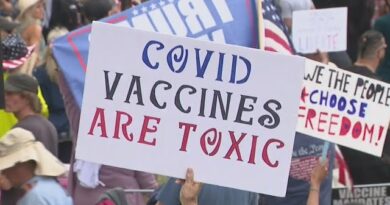Doctored data: Who are the ‘serious COVID cases’?
Hospital officials admit many in COVID wards don’t belong there.
Data from all over the world show that not only does “vaccination” against COVID not prevent infection or transmission – it actually enhances it. But not to worry, say the powers-that-be. The main benefit from these shots is that they reduce the likelihood of getting seriously ill and dying from COVID. And the data seem to back up this claim.
However, there’s so much missing from the data that it’s virtually impossible to draw accurate conclusions with regard to the efficacy of COVID “vaccines.” We know from studies such as this one that most of those who die “of COVID” have significant comorbidities, but official data don’t mention underlying sickness and whether COVID was the last nail in the coffin or simply an irrelevant PCR result.
We also don’t know how many of the elderly population who pass away “of COVID” were unvaccinated because they were deemed too frail to endure the shot, thereby skewing the figures.
We also know nothing about the crucial first fortnight after vaccination. Anyone who dies less than two weeks after a first shot is recorded as “unvaccinated,” supposedly because the shots don’t build up significant immunity for at least two weeks. Graphs showing spikes in mortality in the immediate period after a vaccination campaign are interpreted by those warning of vaccine dangers as proof of what they’re saying. Health authorities explain away the spikes by saying that when contagion rates rise, people rush to get shots, but they don’t work right away so people start dying. That may sound far-fetched, but it was the argument Dr. Sharon Alroy-Preis used in her online presentation to the public when trying to encourage people to vaccinate their children.
However, recent statements from the head of Ichilov Hospital’s COVID ward suggest that a little inside knowledge goes a long way to interpreting these data.
Professor Yaakov Jerris was invited to attend a meeting of the Israeli cabinet on January 30, during which ministers were discussing the extension of the Green Pass restrictions for the unvaccinated. Prof. Jerris was opposed, and he explained why.
“Defining a serious case is problematic,” he said. “For example, a patient with a chronic lung condition starts off with low blood oxygen, and if he then contracts COVID, he’s automatically defined as a ‘serious case’ because of that low blood oxygen, but the COVID didn’t cause it. He’s only in serious condition because of his serious comorbidity.”
Read More – Doctored data: Who are the ‘serious COVID cases’?
*** This article has been archived for your research. The original version from David Icke can be found here ***



